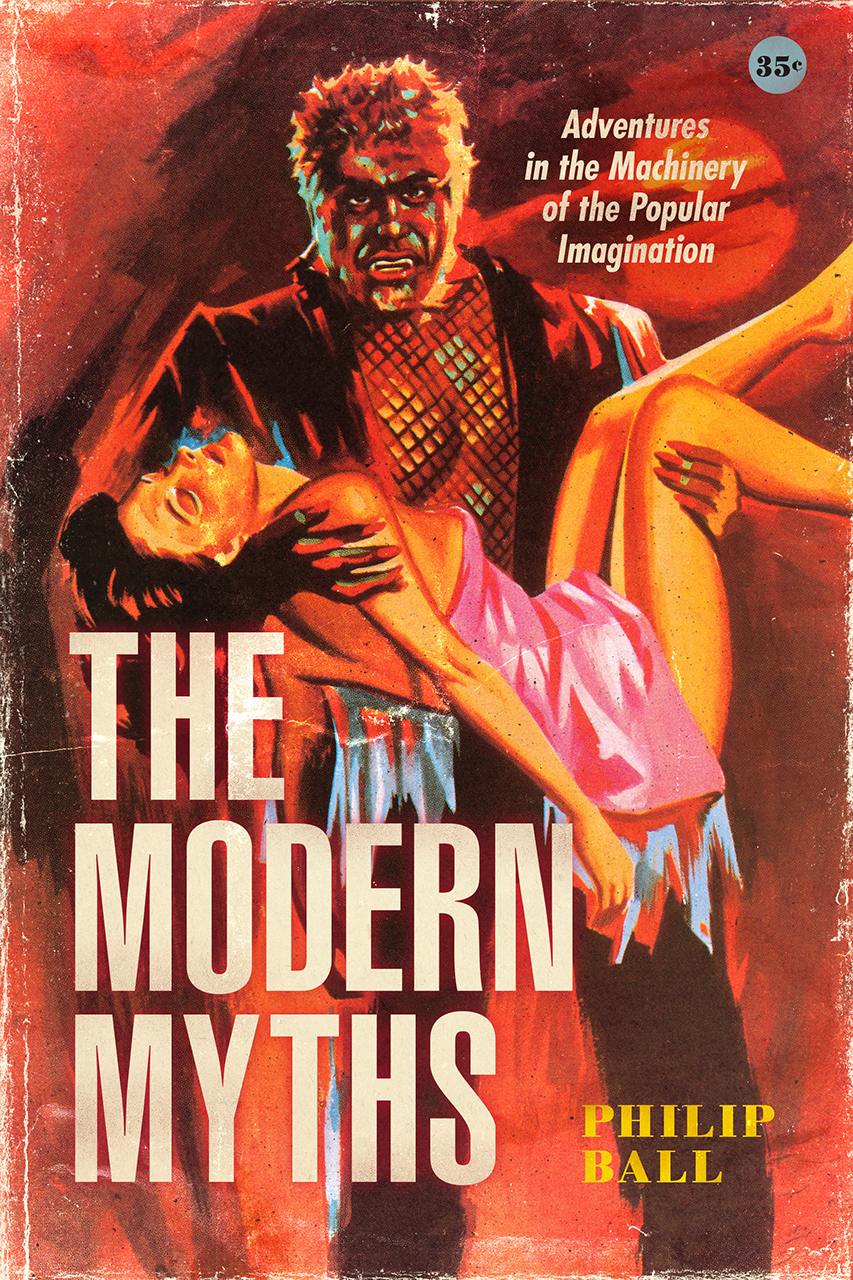Two items recently came to my attention that I think should get a wider circulation, both of which come from writer Philip Ball
First is a book that came out this year but somehow missed my news feed. It is The Modern Myths: Adventures in the Machinery of the Popular Imagination by Philip Ball (University of Chicago Press, 2021). The volume makes the case that we continue to produce myths in the modern period as “civilized” and rational people a surely as the ancients did. Some of the examples of these myths discussed in the book include Frankenstein, Jekyll and Hyde, Dracula and The War of the Worlds. The book’s description:
“Myths are usually seen as stories from the depths of time—fun and fantastical, but no longer believed by anyone. Yet, as Philip Ball shows, we are still writing them—and still living them—today. From Robinson Crusoe and Frankenstein to Batman, many stories written in the past few centuries are commonly, perhaps glibly, called “modern myths.” But Ball argues that we should take that idea seriously. Our stories of Dracula, Dr. Jekyll and Mr. Hyde, and Sherlock Holmes are doing the kind of cultural work that the ancient myths once did. Through the medium of narratives that all of us know in their basic outline and which have no clear moral or resolution, these modern myths explore some of our deepest fears, dreams, and anxieties. We keep returning to these tales, reinventing them endlessly for new uses. But what are they really about, and why do we need them? What myths are still taking shape today? And what makes a story become a modern myth?

“In The Modern Myths, Ball takes us on a wide-ranging tour of our collective imagination, asking what some of its most popular stories reveal about the nature of being human in the modern age.”
The second item of note is an essay on the imagination and how scientists are starting to look at this as an important part of our brain’s evolutionary development just as much as rationality. This idea first appeared on my radar when listening to the Monstertalk podcast with guest Stephen Asma who focused on “monsterology” and also mentioned the brain and imagination idea. Ball writes in Aeon about “Homo imaginatus” with the subtitle “Imagination isn’t just a spillover from our problem-solving prowess. It might be the core of what human brains evolved to do.” A paragraph from the article’s beginning gives a taste for what’s in store:
“Compared with longstanding research about how we process music and sound, language and vision, efforts to comprehend the cognition and neuroscience of imagination are still in their infancy. Yet already there’s reason to suppose that imagination is far more than a quirky offshoot of our complicated minds, a kind of evolutionary bonus that keeps us entertained at night. A collection of neuroscientists, philosophers and linguists is converging on the notion that imagination, far from a kind of mental superfluity, sits at the heart of human cognition. It might be the very attribute at which our minds have evolved to excel, and which gives us such powerfully effective cognitive fluidity for navigating our world.”
Read the Aeon article here.





There are no responses yet